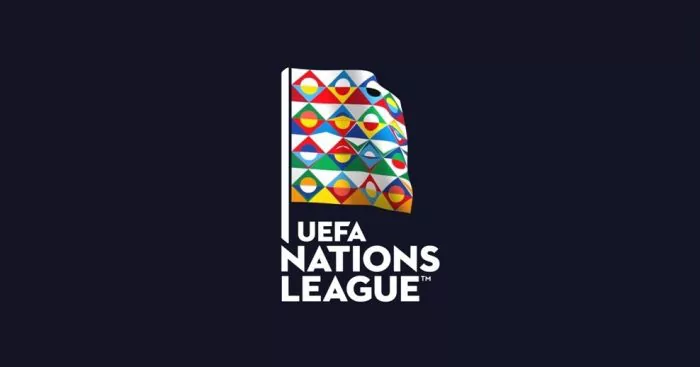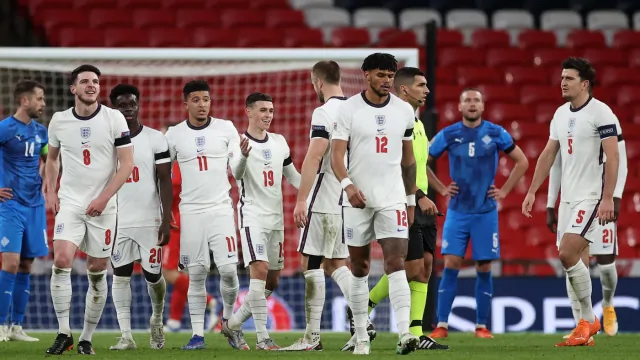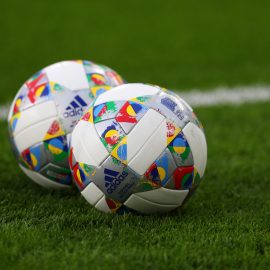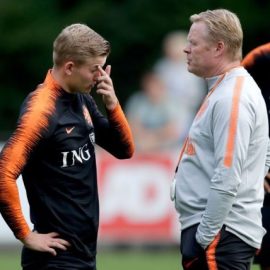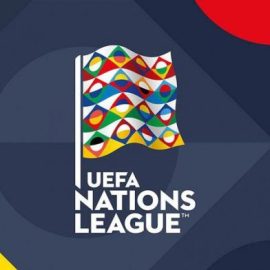England’s super summer in Russia might well be fading into the distance now that club football has returned, but the feelgood factor for the national team following the Three Lions’ efforts is here to stay.
The World Cup may not have ‘come home’, but Gareth Southgate’s men have the ideal chance to build on their Russian exploits when they take part in the new Uefa Nations League from September. This new competition is fast approaching, but has probably caught fans a little by surprise. With that in mind, we take a look at what the Nations League is, what we can expect to see and whether it’s actually a good idea…
So, what is the Nations League?
It might sound like something from the history textbooks but this is the new Uefa international competition, involving all 55 of its football playing nations. Games will be played in the September, October and November international breaks, with finals due next June.
How does it work?
The draw and format is, admittedly, a bit complicated and will take some time to get your head around. Teams have been split into four tiers badged as ‘leagues’ depending on their quality (with the best teams in A and the lowest ranked in D). Within these, the teams have been split into small groups or three or four teams. The teams in these groups will play each other home and away.
Who have the Home Nations got?
Gareth Southgate’s boys have tricky-looking fixtures against Spain and Croatia, their semi-final foes from Russia. Wales and the Republic of Ireland have been drawn together with Denmark in League B and Northern Ireland are in a group with Austria and Bosnia & Herzegovina in the same tier. Scotland start as a third tier team and will play Albania and Israel.
What happens after the groups?
The top team from each of the four groups in League A goes forward to the semi-finals next June. The bottom teams are ‘relegated’ to League B and replaced by the winners of groups in this league. The same happens for Leagues C and D (although there’s no relegation from the bottom division).
Where will the finals be held?
One of the final four teams will host the semifinals, final and third-place play-off next June, with the decision due to be taken in December.
What’s in it for the winners?
Aside from the glory of being Nations League winners (however exciting that may or may not be), this also offers a route to qualification for Euro 2020. Qualifying fixtures for that tournament take place in 2019, with ten separate groups due to be drawn in December (bear with us on this!). The winners and runners-up in those groups qualify for 20 places, with the remaining four to come from the Nations League.
Group winners from leagues A, B, C and D of the Nations League will enter into a playoff to compete for these four spaces in March 2020. This might make things a little complicated – and could prove controversial – but it should ensure that sceptical sides are given every incentive to take this seriously.
Does this mean that friendlies will be scrapped?
There will still be some friendlies, but this should ensure that there are more meaningful games in the international calendar and might make the early season international breaks less tedious.
Hang on, so there’s no ‘summer off’?
That’s right. There’s usually a quiet summer between the World Cup and European Championships to ‘survive’, but the finals of this will be played in June next year, ensuring there’s at least something to look forward to.
So, who’s going to win it?
Ah, so you fancy a flutter? It’s tough to know how this will pan out. Before you fire open your Betway account and make up your mind it’s worth looking at the draw. World Champions France are in a group with a Germany side with a point to prove and a Holland team that can’t carry on being as bad as they’ve been. France might well suffer from a hangover from the excitement of Moscow and could easily struggle in this group so might not do as well as you might expect. Belgium have a friendly draw – with Switzerland and Iceland to play – so should surely make the final four at least. With a good World Cup to build on and a strong squad they might be a good bet to succeed. If Spain’s managerial situation calms down they might also put their World Cup disappointment behind them and do well. They’ll certainly be very tough opponents for England to overcome.
Will it be any good?
This is the biggest question – and the hardest to answer. While the drive to eradicate meaningless friendlies is admirable, the complexity of the format might mean that it takes a while to catch on. The added element of Euro 2020 qualification ensures teams in all leagues have a tangible benefit beyond the slightly odd promotion/relegation element – but it does also make both this and European qualification more confusing in the short term and some feel that it just gives the big teams more chances to save their skin if they stumble.
The Independent’s Jonathan Liew said: “The abstract and the absurd, the golden tickets and the second-chance saloons, the convoluted and the plain crooked: this is not so much a sporting competition as a wacky adventure, an attempt to wheeze some life into a moribund product by adopting the confected jeopardy of a television game show.”
Only time will tell if it is critics such as this or Uefa who are proved right. We’ll soon find out.
Add Sportslens to your Google News Feed!
